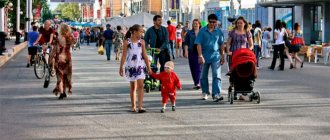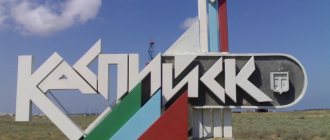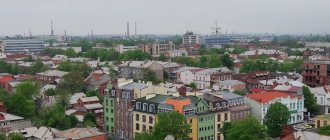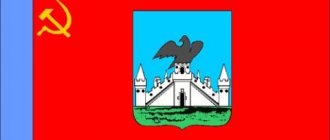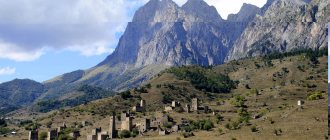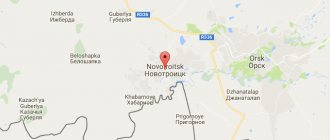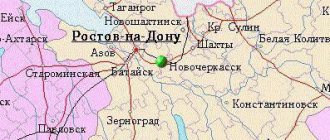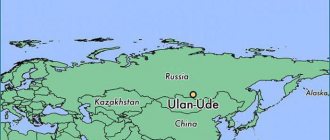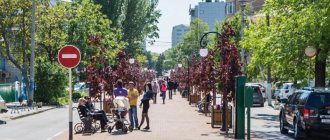Beloretsk is one of the cities of the Republic of Bashkortostan. It was formed in 1762, and acquired the status of a city in 1923. It is the center of the Beloretsky district and municipal entity. The name comes from the Belaya River, on which it is located. This is one of the tributaries of the Kama River. The distance to Ufa is 245 km, and to the Ural Magnitogorsk - only 90 km.
The area of Beloretsk is 41 square meters. km. Population – 65801 people. It is located in the so-called Yekaterinburg time zone, which is characterized by a shift of 2 hours ahead relative to Moscow.
Economy of the city
Beloretsk is an important metallurgical center. Ferrous metallurgy is mainly developed. The enterprises are engaged in metalworking, woodworking, mechanical engineering, and food production.
There are eight enterprises in total, 3 of which are food enterprises: a meat processing plant, a bakery plant, and a butter and cheese plant.
In the 2000s, the city's industry underwent a significant restructuring: the open-hearth furnaces and blast furnaces of the metallurgical plant were stopped and became inactive facilities. Now the basis of the production of this enterprise is steel wire rope production.
The city has a metallurgical college and a technical university. There are also universities with a humanitarian orientation.
Metallurgical empire
The whole history of Beloretsk is the story of its growth and eminence. No matter what happened in the country until recently, with each turn of history the city developed and grew stronger.
Beloretsk owes its birth to the Simbirsk merchant Ivan Borisovich Tverdyshev, who, having invested money in mineral exploration, became the founder of a huge metallurgical empire consisting of dozens of mines and factories. Having discovered Mount Magnitnaya with a rich content of iron ore, Tverdyshev decided to build an ironworks. The necessary supply of timber and water was found in the valley of the Belaya River between the Ural-Tau and Yaman-Tau ridges. Soon one of the main centers of metallurgy in the Southern Urals arose here.
The plant's products were delivered on barges to the Nizhny Novgorod fair, where they were in great demand - cast iron was cheap, and iron was famous for its malleability. In the 19th century, Beloretsk metal was well known in Europe. It was sold internationally under the brand name "Black Sable" . More than a hundred years ago, Beloresk residents carried out orders to decorate the fences of the palaces of St. Petersburg with figured cast iron casting. In 1896, Beloretsk products received the highest award in Russia - the state emblem.
At the beginning of the 20th century, all the factories and mines of Belorechye were connected by railway. The Germans and Arthur-Kopel built a narrow-gauge railway, which made it possible to transport iron ore from the Tukansky mines to Beloretsk, and cast iron from the Zigazinsky, Lapyshtinsky and Inzersky plants. In the pre-war years, the factories were reconstructed - new blast furnaces were built, open-hearth production was mechanized. In 1940, the Beloretsk Metallurgical Plant (BMK) was created, uniting the Beloretsk Metallurgical Plant, the Tirlyansky Sheet Rolling Plant, mines, mining administration, workers' settlements and a narrow-gauge railway - the main transport artery of the entire local mining region.
During the Great Patriotic War, Beloretsk rose to a new stage of development. If for some cities these events became the cause of ruin and decline, then Beloretsk received enormous impulses and was filled with new strength. In 1941, equipment and specialists from similar enterprises were evacuated here - a bimetallic workshop from Moscow, a rope plant and a ferrous metallurgy plant from Ukraine, as well as a machine tool plant from the city of Klin. New equipment made it possible to master the smelting of armor, molybdenum steel and special grades of metal for the front. With the loss of the western territories, the Beloretsk plant became virtually the only enterprise in the country producing high-quality steel of all grades.
The old people say that they survived the war through brotherly help and soldering. They ate leaves, received funerals, paid taxes and loans, worked from dawn to dusk, naked and barefoot, and now they are only surprised at themselves, their strengths and the holy life they once lived: “It seemed like they weren’t even people then, but holy righteous people.” ..."
Veterans of the plant recall: “During the war, the bricks burned out from the heat, but the people endured.” They're not exaggerating. Here's an example. At a steel wire plant, a spiral sagged in an electric furnace. If the furnace was stopped, several tons of metal would have to be rejected. In peacetime, in such cases, the furnace was cooled and then heated again. This took about two days. But in wartime, all the usual forms of work were completely abandoned. In order not to disrupt production, mechanic Korobogatov volunteered to repair the furnace without cooling it. He put on a padded suit, felt boots, and wrapped his face in layers of burlap. After pouring water over him, the workers helped him down into the furnace well. Despite the steam and smoke that made it difficult to breathe, the master blindly repaired the spiral. The smelting continued.
Beloretsk against the backdrop of Raspberry Mountain
Attractions
3 parks have been created in Beloretsk: the teachers' park, the railway workers' park and the park named after. Tochissky. There are a large number of monuments in the city.
Other attractions include:
- Mountain Raspberry. This natural formation is located in the Beloretsky district, just six km from the city itself. Its height reaches 1150 meters above sea level.
- Water tower. This technical structure was erected in 1916. It is a red brick tower. This building operated until 1956.
- Cinema "Metallurg". This cultural institution is located on the central square of the city of Beloretsk. Its reconstruction was carried out in 2004.
Giant company
Of course, it’s difficult to compete with. Both by Russian and international standards, it is a giant in the mining and metallurgical industries. And he makes gigantic deals. The whole country heard about some of them.
In 2008, during a meeting in Nizhny Novgorod regarding rising prices for metals and coal, Vladimir Putin spoke very harshly in relation to its owner Igor Zyuzin personally. “We are so respected,” said Vladimir Putin. — By the way, we invited the owner and head of the company, Igor Vladimirovich Zyuzin, to a meeting, but he suddenly fell ill. Meanwhile, it is known that in the first quarter of this year the company sold raw materials (coal) abroad at prices two times lower than market prices, and therefore world prices. Where is the margin, in the form of taxes for the state?”
The historical building of the plant administration in Beloretsk. Photo by Sergei Sinenko
“Of course, a disease is a disease,” noted Vladimir Vladimirovich and advised the owner of Mechel to get well quickly, “otherwise a doctor will have to be sent to him and cleaned up all these problems.” Putin has never spoken so harshly about any businessman except Mikhail Khodorkovsky. He demanded that both the Investigative Committee of the Prosecutor General’s Office and the Federal Antimonopoly Service look into Mechel’s export supplies of raw materials. As experts noted, the company sold coal to its “daughter” offshore at reduced prices, and it, in turn, sold it at market prices.
This is how it turned out that “offshore”, a word not commonly used in everyday speech, is heard on the streets in Beloretsk. It is not because of a good life that the townspeople have become so advanced. Yes, Mechel is a giant company. But the higher its social responsibility. What did she give Beloretsk? What did you do for the city?
Population of Beloretsk
In 2022, the number of residents of Beloretsk was 65 thousand 801 people. The population curve follows that of many other Russian cities, especially those that were industrially oriented and actively developed during the Soviet period. Thus, until 1989 there was a steady increase in the number of residents. Its maximum was reached in 1987 and amounted to 75 thousand people. Moreover, back in 1897, only 8,300 people lived in the city.
Since 1989, an unsustainable population decline began. Growth was noted only in 1992, 2000, 2003 and 2010. Now the population puts the city in 246th place among the cities of the Russian Federation.
All these data are presented by the State Statistics Service.
Obviously, the decline in the population of Beloretsk, which has been observed in recent decades, is associated with the concentration of the local economy on heavy industries, which are now going through hard times. Other areas are poorly developed. This situation contributes to the outflow of residents to larger cities, as well as a decrease in the birth rate, and has a much lesser impact on the mortality rate. The immediate reason for leaving may be the lack of suitable work and/or low wages, that is, insufficient employment of the population of Beloretsk.
In some cities, a significant incentive is the depressing environment associated with the work of enterprises, as well as increased mortality due to environmental pollution. The situation with water and air pollution in Beloretsk is not specifically covered in the literature, which is due to the low popularity and size of this city. However, the size of the city is too small for single industries existing there to significantly worsen the environment. In addition, the city borders on the forests of the Ural Mountains. However, due to temperature inversions in winter, smoke from factories can concentrate near the earth's surface, which can increase air pollution.
Lower village
I go down Tochissky Street to the dam. From the hillock, wide and free water opened up, above which the air trembled.
This is where the city began. A pond and a dam connecting the banks of the river are a sign of factory settlements. The plant stood in a mountain basin, and the village, as it grew, climbed the eastern slope of the mountain. This is how the Upper Village arose, today it is the main part of Beloretsk. On the right bank there were factory workshops, blast furnaces, workshops, sheds for storing coal and firewood, and storage buildings.
This oldest district of Beloretsk is called the Lower Village, and also “village”, “nizovka”, “nizhukha” - all names are used in everyday life. There are still many old buildings here. The winding streets stretched deep into the estate, the houses placed close together, which are separated only by covered gates, have been preserved to this day. “How are we living? In the morning we milk the cow, and then we go to the factory. The link between the city and the village,” they explain to me.
Here is a stocky old man sitting on a bench. I sit down and get to know each other. Nikolai worked at the metallurgical plant all his life.
“I worked on the crane at the rolling mill, and all the fumes, all the stench, went up. In general, it burned in the fire for 44 years. That's right... And Beloretsk is a hero city. Only there is no work - the metallurgy industry has been destroyed, the mines have been closed. What, the country no longer needs it?! This old government took revenge on the metallurgists. They didn’t punish, but they reduced him to the root. It's a shame for the city. Not fair. And when there is no justice, then you don’t really want to live. After all, we had our own ore in Tukan, of high quality. Now BMK produces only hardware, but they say they don’t buy them very much, especially railway springs. People complain about imported metal - there are a lot of defects.
I'm trying to argue:
- Mechel seems to be an advanced enterprise...
— And I think, first of all, everything depends on the ore! Where is it mined now? “I don’t know,” Nikolai shrugs. — In Tukan, production was suspended. Previously, the rolled wire was 60 percent pure iron, but now... they roll it, and it flakes like bast. What kind of wire is this?! At the 8th kilometer, it seems they want to build a metallurgical plant again and mine ore, but when will this happen? We need to return the plant to the people. That time will come. In the meantime, my whole life is in pieces, only children around!
Beloretsk Employment Center
This institution is located at the address: Beloretsk, st. Krasnykh Partizan, 16. The center is open from Monday to Friday, from 8:00 to 17:00.
For those looking for work, the center provides various types of social services, including:
- finding a suitable job;
- telephone consultation;
- posting employee data on a website on the Internet;
- legal advice on job search issues;
- psychological support and consultation with a psychologist;
- organizing a meeting with the employer;
- consultation on vocational training issues.
Preparing for the move and completing the necessary documents
Having weighed all the pros and cons, we began to prepare for the move in the winter, and the move itself was planned for the summer of the same year. They began to resolve the issue of selling real estate. First, we placed advertisements in the newspaper and placed a notice about the sale on a local television channel. When this did not bring success, in the spring they were forced to turn to the services of real estate agencies. We visited, which was just starting its activities eight years ago. She was recommended to us by friends whom we trusted. The specialists asked for one percent for their work, but they provided insurance at their own expense and checked the purity of the transaction for free. And still the property was sold for a long time, about a year. As a result, the buyer was a woman who came to Kursk from the North for permanent residence.
The realtors themselves drew up the purchase and sale agreement, they drew up the papers, went to various authorities to make the necessary extracts and copies of documents. All we have to do is register all the documents at the registration chamber. We did it ourselves a week later, got it on time in advance, and when it arrived, we went in without any problems and signed the necessary documents. After the transaction was completed, settlements took place. It was convenient for us to arrange a bank transfer to the branch of the Savings Bank of the village of Inzer, to bearer. We went to a bank branch, made a savings book in five days, and deposited a certain amount of money from the sale of our home into a designated personal account.
When the registration was completed, we went to the Housing and Service Center to see the passport officer and signed all family members out of the household. By agreement with the buyer, we did not do this earlier; in addition, the registration chamber explained that if the owner is evicted and formalizes the sale, other family members can be temporarily included until the will of the new owner is expressed. And then we began to collect things and prepare them for transportation to the Republic of Bashkortostan.
Vacancies at the Beloretsk employment center
Job openings for mid-2022 are quite varied and mostly related to non-production areas. As in many other Russian cities, there are a large number of doctor vacancies. The salary for medical vacancies is indicated as “from 15,000 to 40,000 rubles,” so its true level can only be assessed with a special call.
For other vacancies, the salary range is quite significant. In a large number of cases it is 12,800 - 12,900 rubles. Less common are vacancies with a salary of around 15 or 20 thousand rubles. Job openings for large sums are rare. The maximum was 30,000 rubles. from an economist.
At the same time, salaries are below 12,800 rubles. was not found. Thus, despite a good minimum level, in general, wages in the city are not high.
Instead of a “sip of freedom”
History is always distinguished by divergence of plans and results. It happens that the errors are large. But in the case of Beloretsk they are catastrophic. Both the moral and economic meaning of the transformations that have taken place in recent years have turned out to be completely opposite to the original goals.
Having received a “sip of freedom,” people were drawn into deception, which resulted in the destruction of everything that was dear to them. Metallurgists, seemingly proud people, allowed everything to be done to them that the offshore government wanted to do to them. One can only wonder what forces prevent people from dying.
Today, greedy capital has made the lives of several generations of Beloretsk residents meaningless. There is a feeling of guilt towards those who lived before us for the chaos that their descendants allowed to create on themselves. Where are the former metallurgists?
